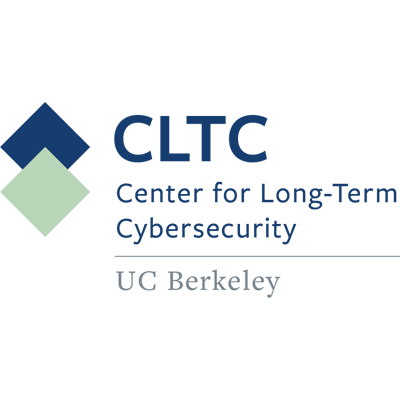
Center for Long-Term Cybersecurity
@CLTCBerkeley
Followers
5K
Following
2K
Media
430
Statuses
4K
Helping society anticipate and address tomorrow's information security challenges, in order to amplify and extend the upside of the digital revolution.
Berkeley, CA
Joined April 2016
Read the full panel recap: https://t.co/v3e27WWNBK CLTC is grateful to each of these fantastic speakers for joining us at the Summit and bringing their expertise to this important conversation. #CyberCivilDefense
securityandtechnology.org
In June, IST Senior Director Michael Klein spoke on a panel at UC Berkeley’s Center for Long Term Cybersecurity #CyberCivilDefense Summit addressing shared responsibility of regional cyber resilien...
0
0
1
🤝 David Batz (@DavBatz), Managing Director of Cyber & Infrastructure Security at @Edison_Electric Institute, highlighted the importance of building mutual assistance programs.
1
0
0
🛠️ Netta Squires (@Nli7), President of Government Affaris, Cybersecurity, & Resilience at Open District Solutions, discussed a "whole-of-state" approach to growing the broader cybersecurity workforce.
1
0
0
Moderator Sean Frazier, Federal CSO @okta, facilitated this lively discussion examining the shifting role of the federal government, the impact on state & local cybersecurity, and how public sector agencies need to reexamine priorities to do more with less federal support.
1
0
0
Check out the latest blog post from our friends at @IST_org spotlighting a #CyberCivilDefense Summit panel, "Without Washington: Rethinking Shared Responsibility for Regional Cyber Resilience.” https://t.co/v3e27WWNBK
1
7
10
💡Officer Ahern emphasized that cybersecurity funding and regulation must go hand-in-hand. States can’t cut their way to resilience, and they can’t protect what they don’t invest in.
0
0
1
➕Adding $100M to the state budget for remediating legacy systems and ensuring security basics like MFA are in place 🤝Offering shared cybersecurity services to counties and municipalities through New York’s Joint Security Operations Center (JSOC)
1
0
1
New York is responding with strategic coordination and investment by: 📜Establishing cost-conscious minimum cybersecurity standards for critical, lifeline infrastructure sectors 💰Creating grant programs to help entities meet new requirements
1
0
0
Attackers are adapting their methods because the cyber insurance market is tightening and regulatory pressure is increasing. In response, they are using more personal, public, and painful tactics to increase pressure on victims and improve their chances of a payout.
1
0
0
➡️ Ransomware gangs are increasingly using “triple extortion” tactics to increase pressure on victims to pay ransoms. Adversaries not only steal or encrypt data, but they also dox, threaten, harass, and swat members of the senior leadership team until a payment is made.
1
0
0
Primary threat actors include: 💵 Financially motivated #ransomware groups from the Russian criminal ecosystem ⚠️ Nation-state actors targeting critical #infrastructure to conduct espionage or pre-positioning to inflict damage ⚡️ Ideologically-motivated political extremist groups
1
0
0
At the #CyberCivilDefense Summit, @politico's Maggie Miller sat down with New York’s Chief Cyber Officer, Colin Ahern, to discuss the State’s “whole-of-state” approach to cybersecurity. 🗽⬇️Officer Ahern pinpointed several key cybersecurity trends in New York:
2
2
5
@CLTCBerkeley recently published a white paper titled, The Roadmap to Community Cyber Defense. The paper is based on findings from the first year of operations of the Cyber Resilience Corps and proposes a “co-responsibility model” for cybersecurity. https://t.co/tptkUZV2jT
cltc.berkeley.edu
Community organizations — including nonprofits, hospitals, schools, local utilities, city governments, and small businesses — deliver vital services to the public, but they are often the least...
0
2
2
New Report: “The Roadmap to Community Cyber Defense"; AISI Seeking Graduate Student Researcher; CLTC Debuts "10 Years of Securing the Future" Video - https://t.co/lrnY03q3qc
0
0
1
⬆️Given these unique conditions, she argued island territories require special consideration in federal #cybersecurity funding formulas and cybersecurity requirements. She warned that a ‘one size fits all’ approach often leaves smaller, underserved communities behind.
0
0
0
Island territories typically: ⚙️Rely heavily on interconnected systems for all essential services, creating single points of failure that can cascade across the entire infrastructure ecosystem. 🛜Have insufficient internet infrastructure, making them vulnerable to cyberattacks.
1
0
0
Rep. Plaskett explained how the geographic and economic circumstances of island territories create distinctive vulnerabilities that compound traditional #cybersecurity challenges.
1
0
0
Congresswoman @StaceyPlaskett, representative of the U.S. Virgin Islands, opened the #CyberCivilDefense Summit with remarks on the need to ensure U.S. #territories are not left behind in efforts to harden the nation’s critical infrastructure against cyber threats.
1
2
5



